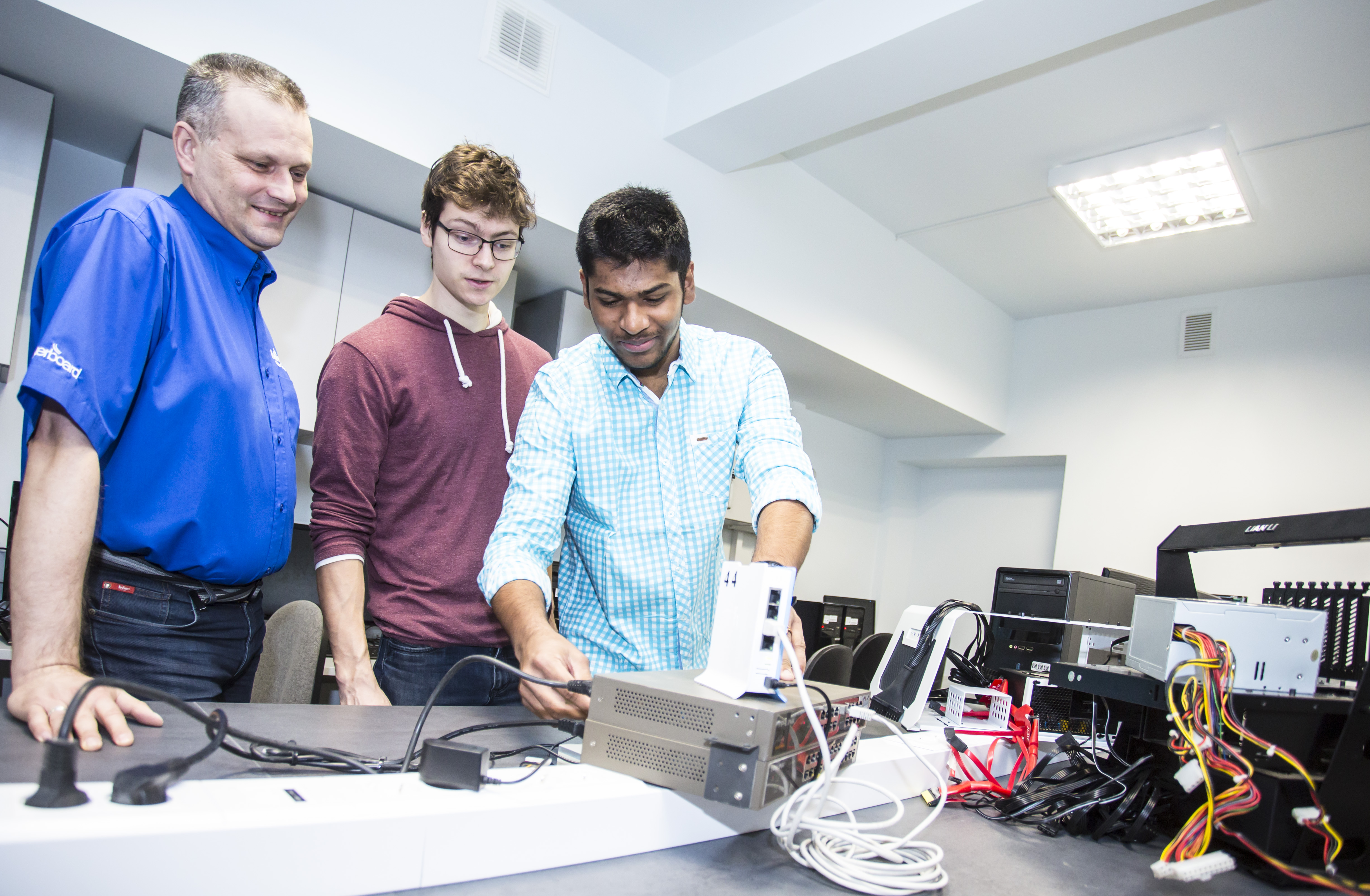Professional BACHELOR'S degree in Information Technology, qualification of Software Engineer
Duration of studies: 4 years
Type of studies: Full time
European Qualifications Framework (EQF) level: Level 6
International Standard Classification of Education (ISCED) level: Level 6
Language of instruction: English
Study programme director: Mg.sc.comp. Dzintars Tomsons, e-mail: dzintars.tomsons@liepu.lv
Fee per year: 2600 EUR
Admission requirements:
- Secondary (High) School Graduation Certificate and Transcript with good results. Education documents must be accompanied by English translations of all certificates and transcripts along with approval of the documents authenticity.
- The grade in Mathematics from the GCSE (at least 60%)
- The grade in English from the GCSE
- IELTS minimum overall grade of 5.5 or TOEFL iBT / paper based or English language profiency letter or LiepU English test
- Recorded interview
About the programme
The main goal of the programme is to prepare highly qualified specialists in Information Technology, providing possibilities to acquire professional higher education and competencies that promotes development of creative personality and professional career.
Career opportunities
After obtaining professional Bachelor’s degree the graduates have an opportunity to work at organisations performing software development, delivery, and maintenance or to work in organization that uses or develops e-commerce technology systems (e-commerce specialist). They also are entitled to continue their studies as Master students in Information Technology or Computer Science in some of the higher education institutions of Latvia or the European Union.
Assessment
Assessment of students’ knowledge is a continuous process, which lasts during the whole semester and it is done on the basis of independent assignments and tests, as well as passing credit tests and examinations twice a year. During the semester each course envisages several independent assignments – practical and laboratory works, tests and reports. At the end of each course students pass a written or oral examination or a credit test. In some courses, during which both lectures and laboratory works are planned, students take both a credit test and an examination. Assessment is made by a ten-point scale or with the help of a credit test.
Language of the programme
Programme is conducted in English.
Compulsory courses: Software Engineering
Programming, Algorithms and Data structures, Object-Oriented Programming, Programming Languages, Development of Web-based Applications, Databases, Software Project Management, Information System Analysis and Design, Software Testing and Quality, Software Agile Development, Computer Networks, Information System Security, Computer Architecture, Operating Systems
Compulsory courses: Electronic Commerce Specialist
Object Oriented Modeling, Office software, Economic statistics, Management Theory; Marketing; Public Relations, Strategic management, Innovation economy, Accounting; Financial Theory, Introduction to Sociology, Labor protection and ergonomics, Civil law, Internet marketing, Visual communication, International business, E-commerce topicalities, E-commerce and money
Methods of teaching and learning
Learning in the study programme is organised in the form of lectures, seminars, practical classes and laboratory works, students’ independent assignment (individually, literary studies, development of a project in small groups). Implementation of each course envisages integration of knowledge, skills and abilities, succession of the courses in their relation to writing the students’ research project.
Individual planning
During the course students fulfil tasks of the practice, set up and present a annual paper (first to third year) and the Bachelor thesis (fourth year).


